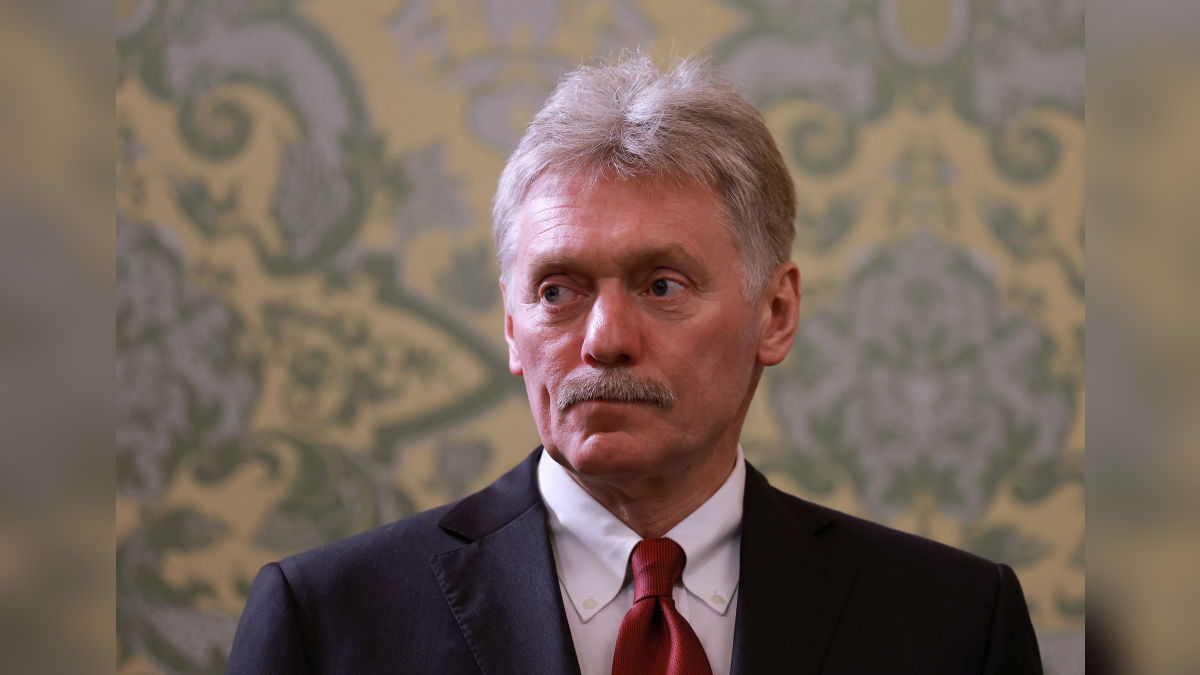Russia has ridiculed US President Donald Trump’s renewed threat to impose a second wave of sanctions over the ongoing war in Ukraine, calling them “absolutely useless” and claiming they have “no effect whatsoever.”
On Sunday, Trump signaled his readiness to escalate economic pressure on Moscow if it failed to pursue peace, warning of secondary tariffs on Russia’s key trading partners and additional punitive measures.
However, the Kremlin appeared undeterred.
Following Moscow’s most extensive aerial assault on Ukraine to date — including a direct strike on a government building in Kyiv — spokesman for the Russian President Dmitry Peskov dismissed the sanctions rhetoric and blamed Kyiv and its European allies for keeping punitive measures central to Washington’s Ukraine policy, reported Newsweek.
“Overall, one thing can probably be said: This unprecedented number of sanctions that have been imposed on our country over the past—well, it’s already almost four years, now four years—have had no effect whatsoever,” Newsweek quoted Peskov as telling Russian reporter Alexander Yunashev.
“They have proven absolutely useless in terms of putting pressure on Russia,” Peksov said, originally in Russian, in a video posted to the Yunashev LIVE channel on Telegram on Monday morning.
Meanwhile, Ukrainian President Volodymyr Zelenskyy has intensified calls for the US to impose stronger, more punitive sanctions on Russia, arguing that only external pressure will compel President Putin to pursue peace.
“It is important that today we saw a broad response from our partners to this strike,” Zelensky said in a statement shared on social media, referring to Western condemnation of recent Russian attacks.
“Clearly, Russia is trying to inflict pain on Ukraine with even more brazen attacks. This is a clear sign that Putin is testing the world – whether they will accept or tolerate this.”
Impact Shorts
More ShortsHe added: “That is why statements by state leaders and institutions must be backed by strong actions – sanctions against Russia and individuals connected with Russia, tough tariffs and other restrictions on trade with Russia. Their losses must be felt. That is what is truly convincing.”
Despite months of efforts to broker peace, including a summit in August in Alaska, Trump’s mediation has yielded little progress. Instead, the conflict has intensified, and Russia shows no signs of retreating from its war objectives.
The fallout from proposed US secondary tariffs has already begun. India, targeted for its continued oil imports from Russia, faced an additional 25 percent levy on certain goods—prompting Delhi to deepen diplomatic and energy ties with both Moscow and Beijing.
China, Russia’s largest oil customer, remains crucial to Moscow’s economic resilience, countering Western sanctions through massive oil imports. The dynamic also complicates ongoing US–China trade negotiations.
Peace prospects remain precarious, hinged on two unresolved issues: territorial integrity and Ukraine’s security architecture. Russia now controls roughly one‑fifth of Ukrainian territory, following its full-scale 2022 invasion, earlier incursions into eastern Ukraine, and the annexation of Crimea in 2014.
The Kremlin asserts that Ukraine’s move toward NATO membership represents a national security threat, and claims retaliation against ethnic Russians as a core grievance. Kyiv strongly rejects these accusations, emphasizing its sovereign right to choose alliances and accusing Russia of waging an imperialist campaign aimed at erasing Ukrainian sovereignty and identity.
Resolving these issues faces constitutional constraints. Ukraine’s constitution forbids ceding territory outright, and martial law prevents referenda or elections to settle boundary disputes. Russia, meanwhile, refuses to commit to a ceasefire. Kyiv insists on robust security assurances, potentially including Western peacekeeping forces—but Russia rejects any such Western military presence, especially from Nato allies.
As diplomatic talks stall and the battlefield sees no de-escalation, the conditions for a lasting peace remain deeply elusive.
With inputs from agencies


)

)
)
)
)
)
)
)
)



